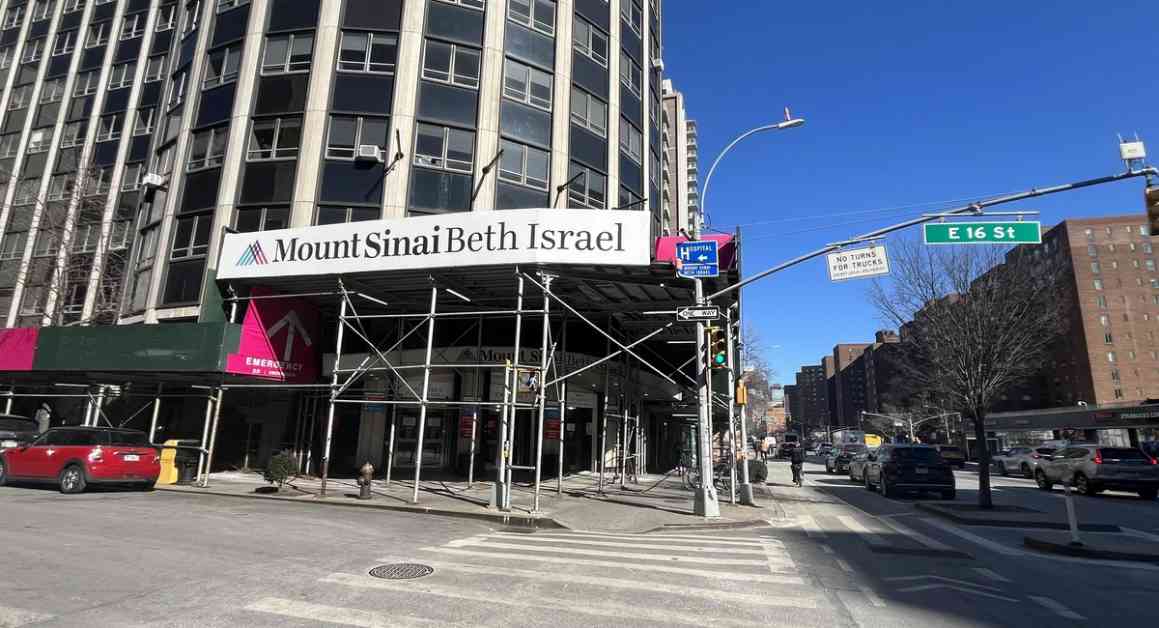Mount Sinai’s plans to close Beth Israel Hospital in New York City have hit another roadblock. An appellate judge recently issued a temporary stay to halt the closure, following a state Supreme Court judge’s dismissal of a lawsuit challenging the shutdown.
The decision to close Beth Israel immediately was made public by Mount Sinai after Monday’s dismissal. The hospital aimed to cease operations entirely by March 26. However, the temporary stay issued on Friday by Justice John Higgit has thrown this timeline into uncertainty. The stay will remain in effect until a panel of judges makes a final determination on the case.
A coalition within the community has been actively opposing the hospital’s closure. They are now seeking legal action to compel the state Department of Health to reverse its approval of Beth Israel’s shutdown. The coalition argues that the state’s decision was arbitrary and did not adequately consider the impact the closure would have on residents of Lower Manhattan. Despite their efforts, a trial judge ruled on Monday that he did not have the authority to overturn the health department’s decision.
Arthur Schwartz, the lawyer representing the community group, has successfully halted the closure of Beth Israel twice since February 2024. Mount Sinai had initially announced its plans to close the hospital, which has served the community for 135 years, due to financial losses at the end of 2023. The state Department of Health approved the closure in July of last year, leaving legal challenges as the final barrier to the hospital’s closure.
In response to the recent developments, Mount Sinai has not provided any immediate comments regarding the temporary stay issued on Friday.
Community Pushback and Legal Battles
The community coalition’s efforts to prevent the closure of Beth Israel Hospital have been met with legal obstacles and challenges. Despite their claims that the state’s approval of the shutdown was flawed and lacked a comprehensive assessment of the closure’s impact, the courts have been hesitant to intervene. The ongoing legal battles highlight the complexities and tensions surrounding healthcare decisions that directly affect local communities.
Mount Sinai’s Closure Plan and Financial Considerations
Mount Sinai’s decision to close Beth Israel Hospital was primarily driven by financial concerns, as the institution had been facing significant losses. The approval of the closure plan by the state Department of Health underscored the difficult financial realities that hospitals often grapple with. The closure of a longstanding institution like Beth Israel raises questions about the sustainability of healthcare services and the broader implications for community access to quality care.
The fate of Beth Israel Hospital hangs in the balance as legal battles continue to unfold. The community’s resistance to the closure reflects the deep-rooted connections and sense of ownership that residents have towards their local healthcare institutions. The outcome of these legal challenges will not only shape the future of Beth Israel but also have broader implications for healthcare access and decision-making in the region.












